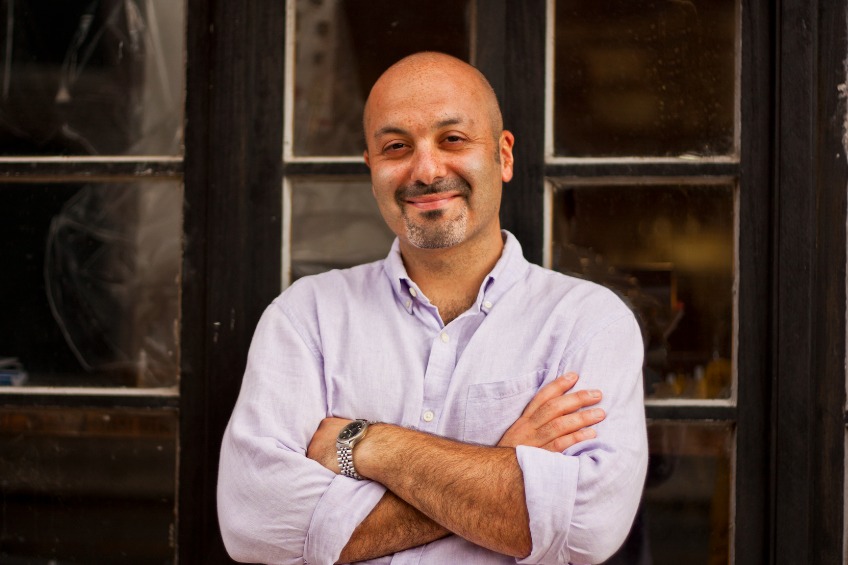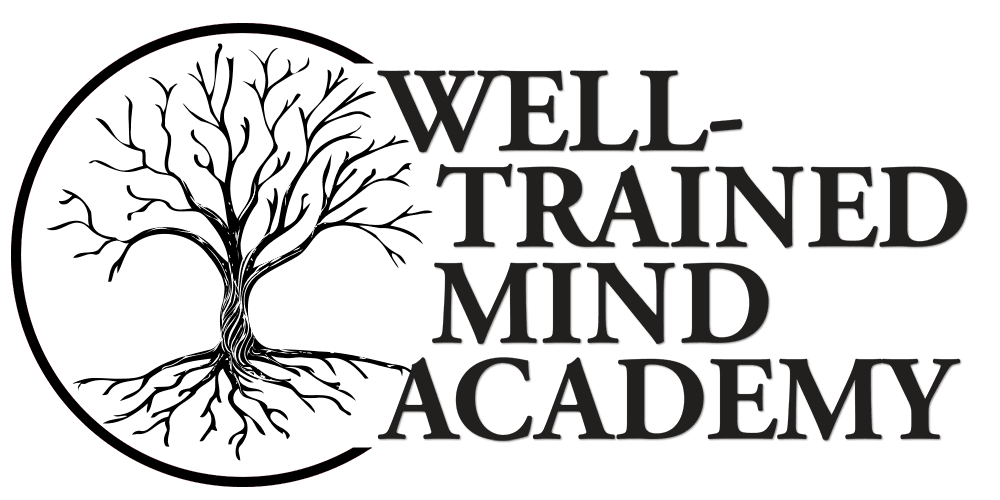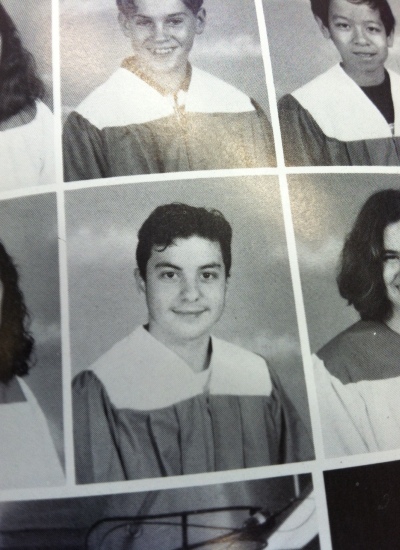Bobby No More: Boris Fishman on Identity, Writing, and the Hustle

In November of 2021, author Boris Fishman spoke with the WTMA Class of 2025 about his work as a writer. Of course you would expect a writer to give eloquent advice about life and art; Mr. Fishman did so much more than that. Through telling his own story about how he came to writing as a career, he showed the students it is possible for one’s passion to sustain their lifestyle (just probably not in New York City…more on that later!).
Many Well-Trained Mind families know Boris Fishman as the author of The Creative Writer series. The series is so good because Mr. Fishman is an exceptional writer. The New York Times raved about his novels A Replacement Life and Don’t Let My Baby do Rodeo, and he won the VCU Cabell First Novelist Award for A Replacement Life. His most recent work, Savage Feast: Three Generations, Two Continents, and a Dinner Table (A Memoir with Recipes), received high praise from the Washington Post, the New York Times, and the Wall Street Journal and was a #1 best seller in Culinary Biographies and Memoirs on Amazon. Taking note of Mr. Fishman’s accomplishments helps us recognize how lucky our students were to spend some time with him in an intimate setting, getting his best advice on life and art.
Who is Bobby?
Mr. Fishman started his talk by explaining that he came to the United States from the former Soviet Union thirty-three years ago this past Thanksgiving, a detail so neat and tidy, he said, that it couldn’t possibly work in a short story. But, he continued, sometimes life is neater than fiction. Life can be funny in a lot of ways. As immigrants, his parents wanted Mr. Fishman to have “a stable, lucrative career” that was “recognizably prestigious.” However, he said, the irony is that his parents were absolutely responsible for his “extreme and acute” interest in writing.
The distance between generations, making sense of yourself in an environment that feels completely world – any experience that is non-mainstream – is where great stories come from, he said. Mr. Fishman continued, “There is no human being on this earth who has only mainstream and generic experiences. We are all other in one way or another” – we just have to find it and accept it. And in that distance – between us and the supposed “norm” – in that discrepancy, is where the stories are. “Art exists to understand those distances.”
He told the students that “[Writing] got a hold of me and I have done my best to free myself of its clutches, but I’m the kind of person who is so miserable doing anything other than what I’m passionate about that I had to return to it.” He did say many authors are able to work in a more regular job and then write successfully on the weekends, but he just isn’t that kind of person.
Many teenagers struggle to establish a strong sense of self as they come of age. Mr. Fishman was no exception. One funny story he told the students was how, growing up in America as a Jewish immigrant, he called himself “Bobby” rather than Boris. “It was the most American name,” he said, “a blonde quarterback from Nebraska.” By the time Mr. Fishman went to college, he had started to find space to explore his identity and rediscover his Slavic roots. He studied Russian Literature (a major his parents weren’t necessarily thrilled about). Through that study, he learned to leave the embarrassment about his past behind.
An Unlikely Path to a Rewarding Destination
And while at first glance a deep dive into Russian Literature doesn’t seem to be the best choice when it comes to finding a lucrative and prestigious career for oneself, it did just that for Mr. Fishman. First, Mr. Fishman said, this learning path gave him innumerable skills in learning how to study, “to acquire knowledge, become a critical thinker – no skill is more indispensable in our world today.” He was able to land a job at the New Yorker because of his ability to both “interrogate and respect facts.” Being bilingual also helped in this respect; his command of Russian, revived during his collegiate study of Russian Literature, was another one of the reasons he got his job as a fact-checker at the New Yorker.
Unfortunately, the editors at the New Yorker weren’t interested in Mr. Fishman’s writing, so he made the hard decision to leave the magazine and strike out on his own.
He hustled. Hard. “New York City is really, really expensive,” he said. “It is hard to be creative and wake up every morning and have faith that you are doing the right thing,” he continued, “when you are barely making enough money for food and rent.” And even during his time as a freelance writer, he didn’t get to write the stories he wanted. He explained that newspaper journalism provides information; fiction writing renders a portrait of lived experience that reveals some essential aspect of the human condition; and the best magazine journalism lies somewhere in between.
Finally, Mr. Fishman decided to apply to graduate school for creative writing. One tangible piece of advice he gave to our students was, “if anyone is interested in creative writing, I couldn’t recommend graduate school more.” Mr. Fishman saw a distinction between himself before graduate school, where he called himself a “dabbler” in writing, and himself after graduate school, where he learned the structure and discipline to treat fiction writing as a job.
Takeaways & Life Lessons from Boris Fishman’s Talk
The takeaway from the vignettes of Mr. Fishman’s early life may have varied from student to student; we all have a tendency to hear what we most want to hear when listening to others speak. However, one overarching message of Mr. Fishman’s conversation with the WTMA students is that hard work and dedication are pushed so hard on us as the best life advice because, in fact, those qualities are truly what get us to where we want to be.
Mr. Fishman also shared with the students an important lesson in rejection. The first time he sent out what would become A Replacement Life to literary agents, Mr. Fishman told the students that, as luck would have it, everyone said no. Then he sent it out again and now half said yes, but half still said no.
He told students “most institutions are very often going to say no because of reasons that have nothing to do with the quality of your writing…. If I could impose on you one piece of advice – please waste no time beating up on yourself in response to a rejection that you’ve gotten. The world will do enough of that for you. Be objective with yourself, but be kind to yourself, too. Be merciful. Remember what your strengths are.” What a lovely sentiment for an experienced writer to pass down to those entering the field, and, in fact, to those of us who have been at this game of life for a while, too!
Mr. Fishman also stressed to students that there is an art in trying to sell oneself. Often, he said, our desire not to appear arrogant tips over into an insufficient pride in what we’ve achieved. The challenge is to be self-aware but also proud of what you have accomplished. And then, plainly, 99.9% of application letters, to anything, are awful – rote, dutiful, stiff. “There is tremendous opportunity to get this right,” he said. To find an applicant who understands themselves AND can write well is rare, in any job.
We are grateful for the time Boris Fishman spent with the Academy, sharing his experiences and advice with our students and kindly answering their questions. Mr. Fishman’s message of self-assuredness, perseverance, and commitment to one’s passion was inspirational to us all.
To learn more about Boris Fishman, we encourage you to check out his website and to read his books!

